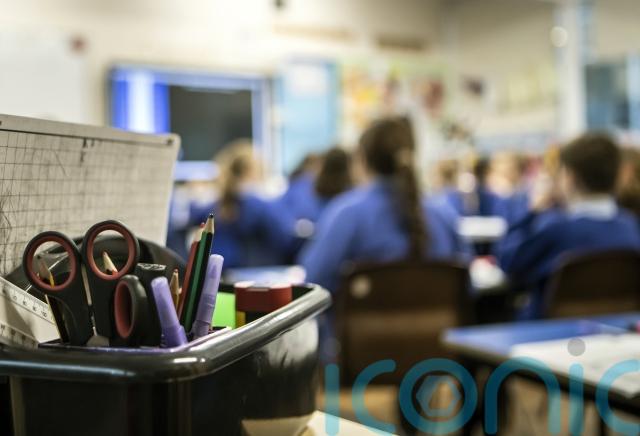
Only one in four parents and just over a third of teachers view the Irish education system as inclusive for autistic pupils, research suggests.
The research exposes the disconnect between how parents view the Irish education system and the practical implementation of inclusive education for all autistic pupils.
The findings highlight the serious concerns around the current provision of education for autistic children across Irish schools.
The research was carried out by the DCU (Dublin City University) Institute of Education.
It revealed that just over a quarter (27%) of parents in mainstream schools and 9% of parents in special schools believed that the Irish education system was inclusive for autistic pupils.
In mainstream schools, just over a third of teachers (34%), school leaders (32%) and SNAs (43%) believed that the education system was inclusive for autistic pupils.
Dr Sinead McNally, associate professor of psychology at DCU and principal investigator of the national study, said the research shows that parents of autistic children see significant resourcing challenges as a major barrier to their child’s full inclusion in education.
Mary Rose Sweeney was the co-principal investigator of the project.
Looking at the findings of parents’ views on the education system, Dr McNally said: “This points to a mismatch between a school’s commitment to inclusivity in principle and the practical implementation of inclusive education for all autistic pupils.
“This disconnect was also reflected in parent respondents, as 69% believed that their child’s school is inclusive for autistic pupils, but only 26% of parents in mainstream schools, and an even smaller proportion of parents in special schools (9%), believed that the Irish education system is inclusive.”
Under Article 24 of the United Nations Convention on the Rights of Persons with Disabilities (UNCRPD), autistic children have the right to be fully included in mainstream educational settings, with individualised supports and accommodations in place.
“In the UNCRPD, inclusive education is defined as children with and without disabilities learning ‘together in the same classroom environment’. There is a mismatch between this definition and the increasing reliance on autism classes in Ireland,” Dr McNally added.
In the DCU study, researchers surveyed a representative sample of parents, teachers, school leaders and SNAs in primary, post-primary and special schools in Ireland to assess knowledge of autism and attitudes to inclusion in education among the wider community.
“We did so because identifying the attitudes of different educational stakeholders is important, as attitudes drive intention and can predict behaviour, including teachers’ choice of pedagogical practices and parents’ participation in educational policy-making,” Dr McNally added.
“Recognising that authentic and sustainable inclusive education requires whole-school support, we wanted to gain a clearer understanding of the views and attitudes of the wider school community, including parents and staff, across different school levels and types.
“We found high levels of understanding of autism and positive attitudes to inclusive education which is very positive and may reflect the impact of highly visible advocacy groups and parents on this key issue in education.
“When we asked respondents about supports for autistic students in education, we found that the majority of all respondents in both mainstream and special schools believed that autistic pupils attending their school were well supported.”

The research found that the highest proportion of agreement with this statement in mainstream schools came from teaching staff at 81% and SNAs at 87%.
A much higher proportion of parents of children in special schools (96%) agreed that autistic pupils were well-supported in their school compared with parents in mainstream schools (52%).
A minority of parents (19%), teachers (30%), school leaders (16%) and SNAs (32%) believed that their mainstream school had adequate resources to effectively include autistic pupils with complex needs.
In contrast, 77% of parents in special schools felt that the school had sufficient resources and supports.
However, a substantial proportion of teachers (42%), school leaders (60%) and SNAs (55%) in special schools felt that they did not have sufficient resources and supports.
The majority of parents, teachers, school leaders and SNAs in both mainstream and special schools believed that their school was inclusive for autistic pupils.
Proportions of agreement with this statement were higher in special schools, with 100% agreement by school leaders in special schools and agreement above 90% for parents, teachers and SNAs in special schools.
When asked about inclusion in their own schooling contexts, 69% of teachers reported that autistic pupils of any level of need can attend their school and 81% of teachers felt that autistic pupils in their school are well-supported.
However, only 30% reported that their school has sufficient resources to include autistic pupils with complex needs.
Research with parents of autistic students highlighted that parents view significant resourcing challenges, including access to teaching support staff, occupational therapists, speech and language therapists, and psychologists in the school context, as a major barrier to their child’s full inclusion in education.
“Overall our findings indicate that positive attitudes and knowledge alone cannot translate into successful inclusion without the necessary infrastructure,” Dr McNally added.
“Our study underscores the need for system-wide changes to ensure resources and structural supports are in place to facilitate inclusive practices in all schools.
“On the one hand, our findings are positive in that they highlight a good understanding of autism in the wider school community and a good understanding of what is required to include autistic children in education.”
The Department of Education has been contacted for comment.
Subscribe or register today to discover more from DonegalLive.ie
Buy the e-paper of the Donegal Democrat, Donegal People's Press, Donegal Post and Inish Times here for instant access to Donegal's premier news titles.
Keep up with the latest news from Donegal with our daily newsletter featuring the most important stories of the day delivered to your inbox every evening at 5pm.